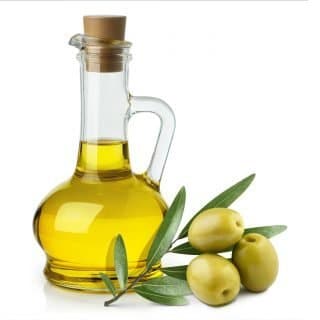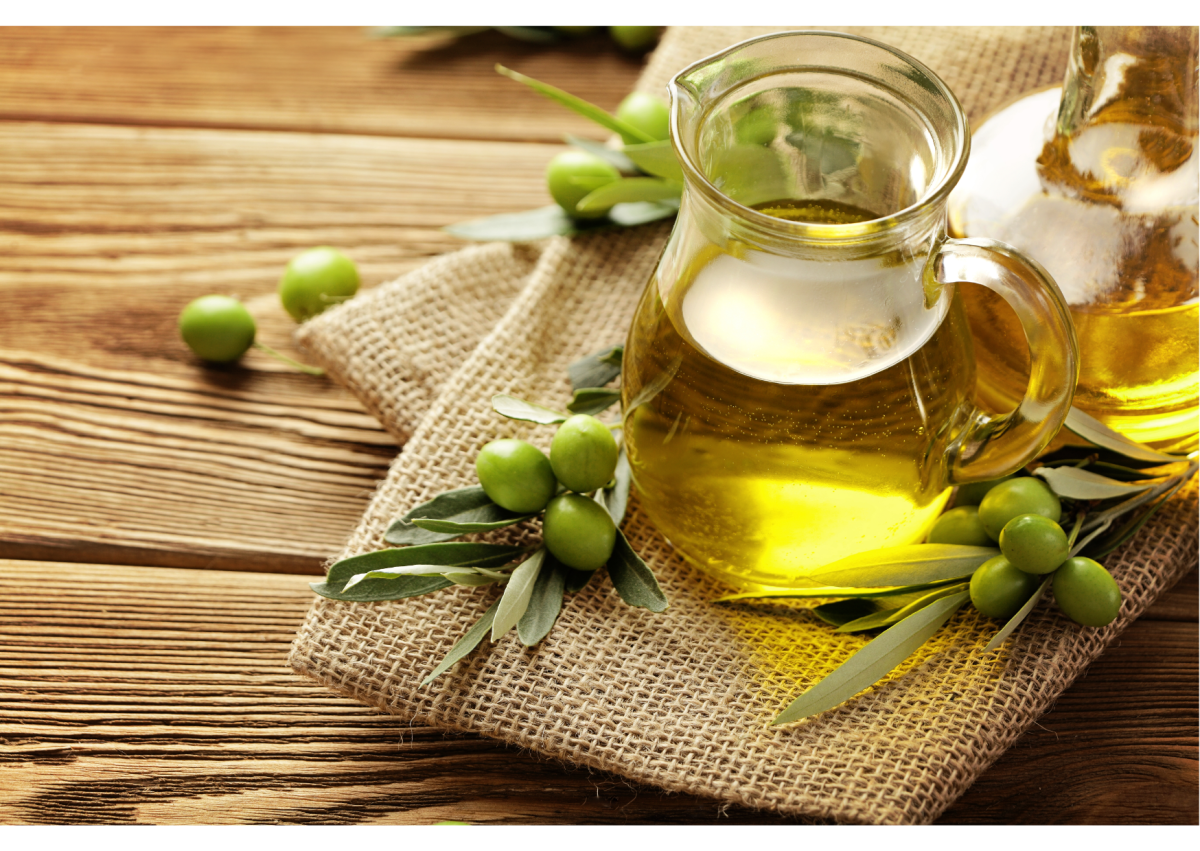Polyphenols in olive oil explained
- Dietary Advice (non Low FODMAP)
Polyphenols in olive oil are naturally occurring compounds but what is all the hype about?
Olive oil is praised as an international ‘superfood’, used to sprinkle on salads, an ingredient in dressings and spreads and a popular choice of oil for day-to-day cooking.
Olive oil is a large component of the Mediterranean diet and is rich in antioxidants. This is where you may have stumbled across polyphenols in your searching!
Polyphenols sound rather complicated. However, we can assure you that they aren’t so bad and in this article we will break down the benefits of polyphenols in olive oil along with some ideas of how to use it.

What are polyphenols?
Polyphenols are naturally occurring micronutrients found in foods and are the most common molecules in plant-based foods. There are over eight thousand different types of polyphenol structures (1).
Polyphenols have four different types;
- Phenolic acids
- Flavonoids
- Stilbenes
- Lignans
In olive oil, polyphenols are responsible for the bitter flavour you may have noticed (2).
Is olive oil high in polyphenols?
Yes, olive oil is high in polyphenols! Olive oil contains phenolic acids. There are; hydroxytyrosol, tyrosol and lignans such as pinoresinol, hydroxypinoresinol and acetoxypinoresinol (3).
Though the quantity and quality can depend on different things such as temperature, agricultural techniques, soil composition, climate, ripening stage when picked, processing technique and storage (2).
How is olive oil with polyphenols produced?
Olive oil is derived from olives by manually or chemically extracting the oil. The oil extracted is refined to purify it for consumption.
Polyphenols are naturally occurring within the oil that is extracted from the olives.
Which oil has the highest polyphenol content?
Extra virgin olive oil has the highest polyphenol content (2). Higher polyphenol content is due to the oil extracted having not gone through the refining process, so more of the polyphenols are preserved.
It is reported that a higher polyphenol content of olive oil leads to a more bitter taste than expected.
The more processed the olive oil goes through after harvesting, the less polyphenols the olive oil will contain.
You also may be wondering if the colour of the oil changes the polyphenol content.
Colour generally does not have anything to do with the polyphenol content nor quality – more so the chlorophyll and carotenoid content, the age of the olives, exposure to light, heat and oxygen (3).
The benefits of extra virgin olive oil and polyphenols
As mentioned extra virgin olive oil contains the highest amount of polyphenols.
In patients with high cardiovascular disease risk, a Mediterranean-based diet enriched with extra virgin olive oil lowered the risk of type 2 diabetes by 40% (4).
A Mediterranean diet is known to be rich in polyphenols and antioxidants due to the diet being high in foods such as fruits, vegetables, olive oil, nuts and seeds such as cereals and legumes (4).
Some research suggests that polyphenols in extra virgin olive oils interact with carbohydrates when ingested to reduce absorption (4).
By reducing absorption of carbohydrates, it reduces the amount of glucose released into the blood from the liver and decreases the activity of glucose producing pathways in the body (4, 5).
Thereby preventing abnormal blood glucose readings contributing to type two diabetes (6).
Where can I find olive oil high in polyphenols?
You can find regular extra virgin olive oil on the shelves of your local supermarket.
Top tip: polyphenol content is higher in olive oil when the olive oil is fresher, some bottles include the date of harvest. The more recent this is, the greater the polyphenol content of that bottle.
Get savvy by reading food labels on olive oil bottles to ensure they are the real deal.
Alternatively, search for the world’s best olive oils 2023 if you’re after a high polyphenol content.
And, before spending your money on the best olive oil in the world; remember that olive oil is not the only source of polyphenols in the diet.
Be warned that there can often be scams, particularly on the online market, claiming to be extra virgin olive oil.

What are the benefits of polyphenols?
Certain chronic diseases can be prevented or have a reduced rate of occurrence due to polyphenols. These include, but are not limited to cardiovascular, cancer and neurodegenerative disease.
Polyphenols have this effect due to their potent antioxidant abilities. Antioxidants help to reduce and repel reactive oxidative species in the body.
These compounds are natural vasodilators whereby the blood vessels can widen more to increase blood flow to reduce blood pressure and improve circulation (7).
In the immune system, polyphenols also play a role by increasing the production of white blood cells and cytokines that form part of the body’s natural defence system (1,8).
Studies have shown that patients who used polyphenol-enriched extra virgin olive oil had reduced inflammatory markers known as C-reactive protein and interleukin-6 (8).
Lower inflammatory markers prevent inflammatory-related chronic diseases such as diabetes, cardiovascular diseases, obesity and Alzheimer’s (8).
A diet high in polyphenols was shown to reduce body weight in a group of elderly participants who had a high risk of cardiovascular disease (9).
Does olive oil have other benefits?
Absolutely, olive oil has multiple health benefits.
Olive oil is rich in healthy fats and low in saturated fats. The healthy fats within olive oil are monounsaturated (10).
The most abundant polyphenol in olive oil is called ‘tyrosol’ – a type of phenolic acid (11). Luckily, this type of polyphenol tends to increase along the storage process (12).
Olive oil is known to be a part of the Mediterranean diet. A region of Europe that is known for having significantly lower rates of cardiovascular disease (13).
In terms of managing IBS symptoms, particularly if you struggle with IBS-C or general constipation, olive oil is said to have some benefits.
If you are looking for how to use olive oil for constipation, then you can read here.
Olive oil recipes
Fancy some inspiration to include olive oil in the diet other than for roasting or frying?
Why not try some of the following recipes:
- 33 Olive Oil Recipes We Can’t Resist – Insanely Good
- 104+ BEST Recipes That Use Olive Oil
- Olive oil recipes – BBC Food
Summary
Having read this article, I’m sure we are more aware of what polyphenols are, their benefits and that olive oil is a good source of these powerful antioxidants.
Polyphenols are proven to benefit cardiovascular health, including blood pressure-lowering effects and anti-inflammatory effects along with immune support and type two diabetes prevention.
Next time you go shopping, have a look at food labels (and price!) to see if you could add olive oil to your basket for the polyphenol benefits.
However, as mentioned, other aspects of the diet can be looked at to boost the polyphenol content. Olive oil is energy-dense, so it could sneakily contribute to weight gain if consumed excessively.
Like everything, in moderation!